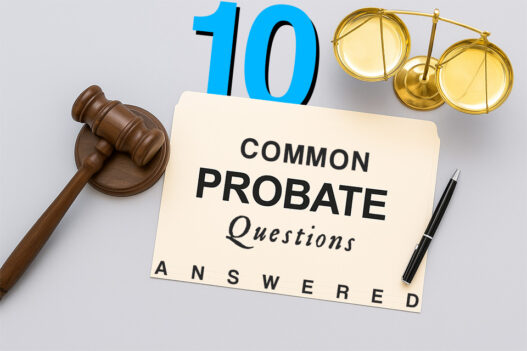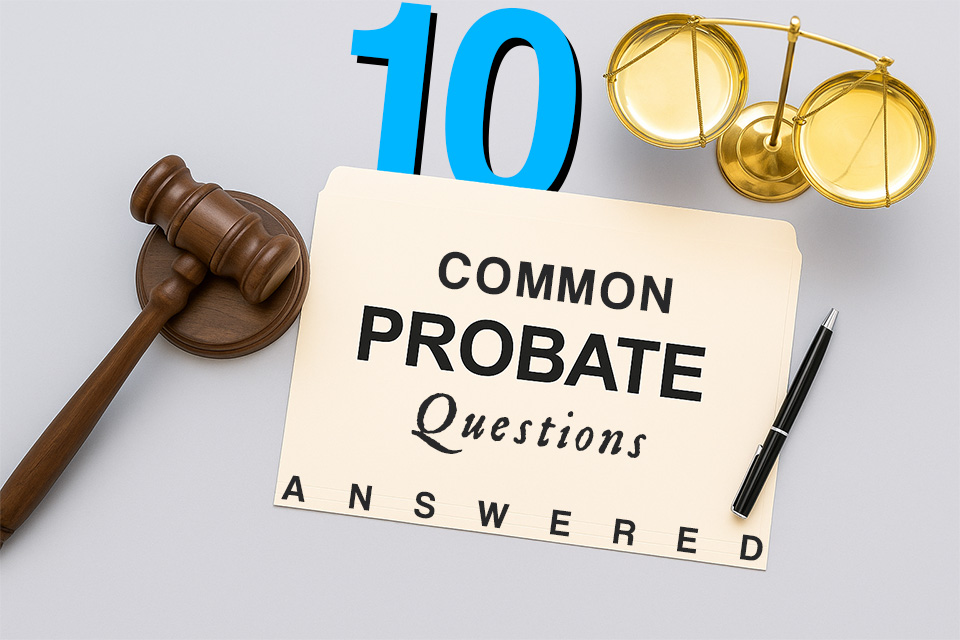Probate often feels overwhelming for families managing a loved one's estate, especially given the many legal complexities and procedural uncertainties.
Whether you are facing the probate process for the first time or looking for ways to streamline estate administration, understanding the basics is essential. Consulting with a trusted Colorado probate attorney can provide clarity and guidance tailored to your unique situation, ensuring you make informed and confident decisions while safeguarding your loved one's estate.
Since probate rules and timelines vary by state, you must stay informed and consider professional advice early in the process.
Proper preparation and understanding can help reduce stress, minimize delays, and prevent costly errors.
This article addresses the most common probate questions, aiming to empower families and beneficiaries with practical information and resources.
1. What Is Probate?
Probate is a court-supervised process that authenticates a deceased person's will, if there is one, and oversees the distribution of assets after debts and taxes are paid. The primary goal of probate is to ensure that an individual's wishes, as outlined in their will, are honored and that creditors are appropriately paid before assets pass to heirs and beneficiaries.
2. Is Probate Always Required?
Not all assets have to go through probate. Probate depends on how the deceased's accounts and property are titled. Assets held in a trust, jointly owned property with rights of survivorship, or accounts with designated beneficiaries usually bypass probate entirely. Many states also allow simplified procedures for small estates, making the process swifter and less expensive for heirs.
3. How Long Does the Process Take?
The probate process varies widely depending on the estate's size, complexity, and location. Most straightforward probates take several months to a year. Complicated estates or disputes among heirs can take longer, sometimes several years. For example, in Colorado, the process may be relatively efficient for uncontested estates, but delays can occur if disagreements arise among beneficiaries or creditors file claims against the estate. For more information on the probate timeline in Colorado, refer to the Denver Bar Association.
4. Can Probate Be Avoided?
Yes, standard estate planning tools are designed to bypass probate, saving time and legal expenses for families. Some of the most effective strategies include:
- Establishing a revocable living trust so that assets transfer automatically to named beneficiaries upon death
- Naming pay-on-death (POD) or transfer-on-death (TOD) beneficiaries on financial and retirement account
- Owning real estate or other assets jointly with rights of survivorship
These approaches let key assets transfer directly without court oversight, expediting loved ones' inheritances. Investopedia has more details on probate avoidance.
5. What Happens If There's No Will?
When a person dies without a will (intestate), their estate is distributed according to state law rather than personal wishes. Usually, surviving spouses, children, or other close relatives inherit assets in pre-determined shares. The court appoints an administrator to manage the estate, settle debts, and ensure assets are allocated according to intestacy statutes.
6. How Much Does it Cost?
Probate expenses range considerably and can include court filing fees, attorney fees, executor or administrator fees, appraisal fees, and miscellaneous expenses. The estate size influences the total cost, whether the will is contested, and state-specific fee structures. In Colorado, as in many states, attorney and personal representative fees may be subject to statutory guidelines or be based on reasonable hourly rates.
7. Who Handles Probate?
The person charged with managing probate is called an executor (if named in a valid will) or an administrator (if appointed by the court without a will). This representative is responsible for locating and valuing estate assets, preparing necessary court documents, notifying creditors and beneficiaries, paying debts and taxes, and distributing property according to the will or state law.
8. Can Probate Be Contested?
It is possible to contest probate if there are valid reasons to challenge the terms of a will or how the estate is administered. Most common reasons for contesting it include:
- Allegations of undue influence over the decedent at the time the will was created
- Claims of fraud or forgery
- Disputes over the decedent's mental competency
Probate contests can be costly, time-consuming, and often lead to significant family divisions. Still, they serve as an essential legal remedy when there are genuine concerns regarding the decedent's wishes or the executor's conduct.
9. Are All Assets Subject to Probate?
Not every asset is subject to the process. Common assets that pass outside of probate include:
- Accounts or policies with named beneficiaries (e.g., life insurance, retirement accounts)
- Jointly owned assets with survivorship rights
- Properties held in a trust
These assets pass directly to heirs or beneficiaries and are not subject to court administration.
10. What Happens to Debts?
The executor or administrator is responsible for gathering information about all outstanding debts and obligations. During probate, creditors are notified and given time to present claims. The estate's assets are used to pay valid debts. If the estate lacks sufficient assets, some debts may remain unpaid, as creditors must abide by state laws dictating payment priority. Remaining assets, if any, are then distributed to heirs.
Being proactive about probate and estate planning can prevent confusion or costly errors later. Always consult with experienced professionals to ensure you're following local laws and acting in the best interests of all parties involved.
The post 10 Common Probate Questions Answered appeared first on MoneyMiniBlog.



















